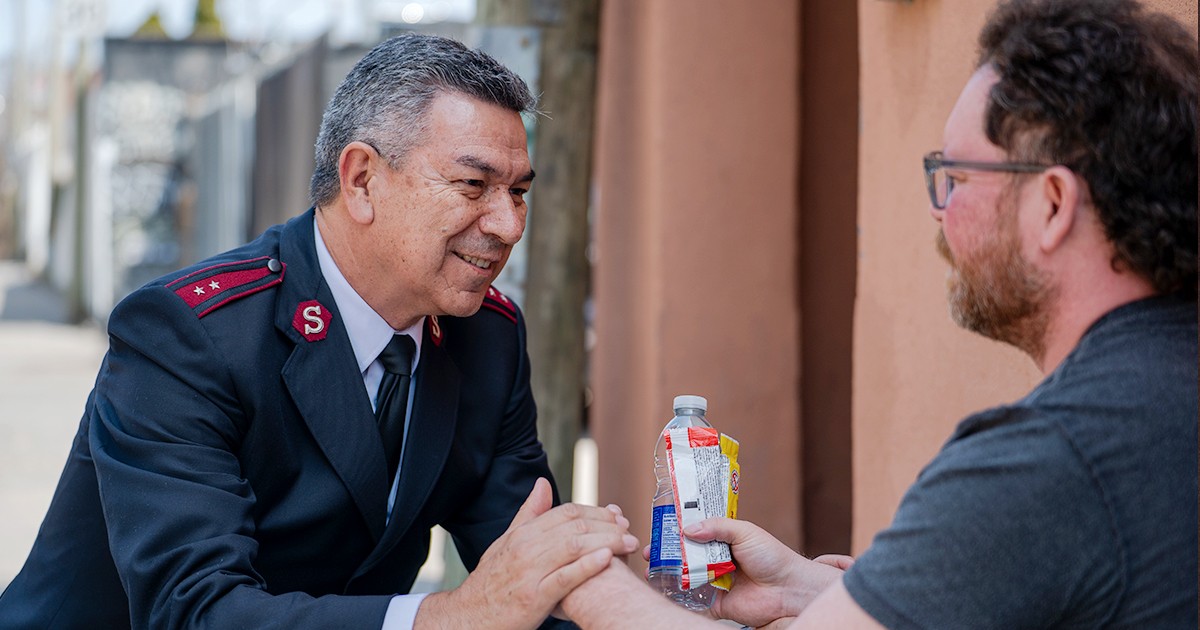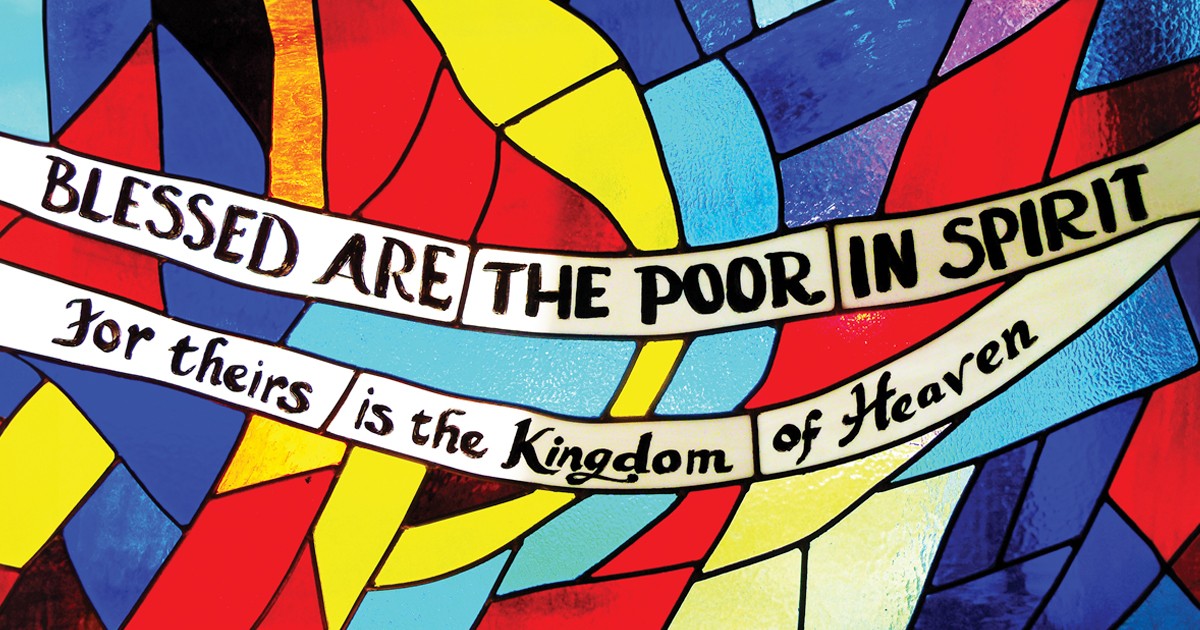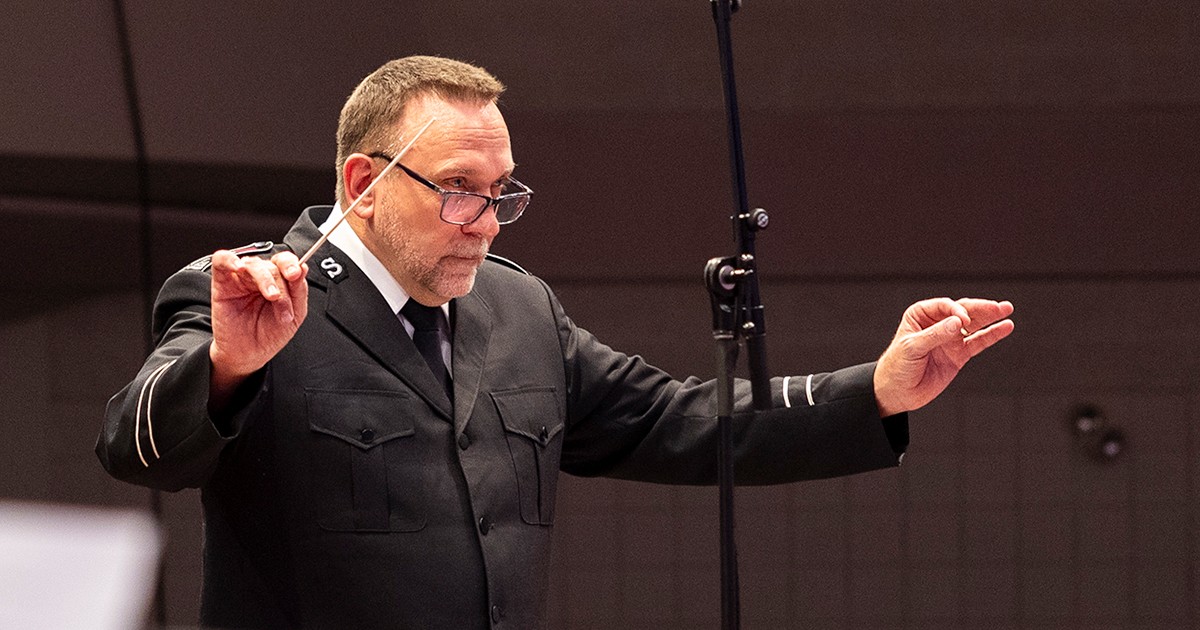 The call came through in the late hours of the evening. The voice on the phone was frantic. “Major Julie,” she said. “All the families in our complex are being evicted. We don't have anywhere to go and we don't know what to do.”
The call came through in the late hours of the evening. The voice on the phone was frantic. “Major Julie,” she said. “All the families in our complex are being evicted. We don't have anywhere to go and we don't know what to do.”
This is the dilemma faced by more than 100 families this Christmas in the neighbourhood surrounding Winnipeg's Heritage Park Temple. Final notice is served for January 31, 2012. Some might say, “What's the big deal? Just find yourself another place to live!” But solutions are not so easily found when you calculate the limited options that exist for low-income housing in the city. With this dark cloud hanging over their heads, it's not going to be easy for any of these families to have themselves a “merry little Christmas.”
Here is the challenge so many of us face at this time of the year: Christmas does not cancel out life's realities. The blanket of nostalgia that covers our winter wonderland with warm sentiments of the season does not eliminate eviction notices, reduce the bills that have to be paid, alter terminal diagnoses, diminish depression or lessen loneliness. Christmas will not weaken the grip that hopelessness has on the marginalized and impoverished of our communities. Chestnuts may roast on open fires and hot apple cider simmer on stoves, but for many people Christmas remains a cold, conflicting experience.
As Salvationists, we quickly rally to the call, perhaps more so at this time of the year than others. We recruit volunteers for kettle shifts, toy drives and hamper packing. We visit hospitals, seniors' residences and correctional institutions. Our goal is to bring Christmas cheer. We move into this ministry for a season. But once we reach our December 25 deadline, we shut down our efforts. We pack up our kettle supplies, retire unused toys and try to recover from the mad frenzy of the past few weeks.
This leads to an important question: Why can't we rally the kind of support we see at Christmas at other times of the year? Why does it take this holiday season to heighten our sensitivity toward the poor and disadvantaged? Perhaps it's because of what is encountered in the first experience of Christmas. Consider the gospel account: it is a picture of a holy God opening up the eternal realm and putting all of Heaven's escalators in downward motion. In so doing, God moves into our neighbourhood in human form and does not show preference to the address or postal code. It is God launching Operation Bethlehem as part of his continuing dignity project to affirm the value and worth of all human beings for divine and holy purposes.
Think about Mary. She is just a young peasant girl with no special status or reputation whom God chooses to be part of Operation Bethlehem. The angel's message is clear: she will give birth to a son, but not just any son; he would become the Son of the Most High (see Luke 1:31-33).
God could have written a much different screenplay. The child could have been born into the noble courts of the day where there was extravagant wealth and affluence. (If King Herod had not been so threatened by the coming of the Messiah, maybe this could have been the script.) However, Jesus arrives in the midst of King Herod's raging fear and jealousy, with the Jewish leader ordering all male babies to be murdered so that he could secure his throne at all costs. It is not a pretty picture. Injustice cries out from the margins of the text as those who have no means to change their circumstances fall victim to the edicts of the day. In the midst of this, a young peasant girl is elevated to bear the Son of the Most High God.
Joseph, the man chosen to be Jesus' earthly father, is a common carpenter with no unique distinction or station in society either. Operation Bethlehem strategically includes someone of the blue-collar trade. Joseph's livelihood depends on the skill of his human hands and the endurance of his will. In no way did Jesus have societal advantage by way of his earthly parents.
The poverty surrounding the first Christmas intensifies when we tread with hastened steps into the birthing room of the Saviour. We will not find anything lavishly prepared. Rather, it is a rusty feeding trough, padded by the stubble of straw in a drafty barn, that becomes the cradle for God's Son. Operation Bethlehem sends the King of Kings and the Lord of Lords into the most humble of circumstances, as he becomes one with those for whom there was no light shining “hope in the city.”
Operation Bethlehem's emphasis toward the value of all people is further illuminated as we encounter the presence of the shepherds. While there were probably more learned and influential voices that could have announced Jesus' birth, God chooses a handful of grubby shepherds. Marginalized by the socially and religious elite, it is the riffraff from the distant fields who become the first onsite reporters and spread the word about the Saviour being born (see Luke 2:8-20). While there might have been a more prestigious way to give this event the media attention it deserved, Operation Bethlehem entrusted this responsibility to the lowly and disenfranchised.
So, why does it take Christmas to heighten our sensitivity toward the poor and disadvantaged? The first Christmas, God's Operation Bethlehem, naturally navigates us in this direction. Heaven's dignity project deliberately emphasizes that all people would see the glory of the Heavens opening and know the good news coming into the world. If peasant girls, common carpenters and poor shepherds find centrality in the Christmas story, surely it is good and right that this demographic becomes central to our own expression of Christmas.
While we might rest comfortably in this realization, the gospel does not release us from the work Operation Bethlehem initiates. Ministry does not cease at the manger, nor does it cease for The Salvation Army. The One who was anointed “to proclaim good news to the poor … to proclaim freedom for the prisoners and recovery of sight for the blind, to set the oppressed free” will travel many miles beyond Bethlehem (see Luke 4:18-19). Ministry to the poor will continue to be a primary focus. It is our privilege to walk this distance with Jesus. Yet ahead, there will be a Garden of Gethsemane, betrayal, rejection, misunderstanding, a cruel and brutal death and finally the victory of a glorious Resurrection. Ministry will move out and find its fullest expression beyond the manger. While our own Operation Bethlehem will serve our communities for a season, we recognize that the ongoing work of advocating and caring for the poor will be an essential part of our post-manger experience.
Last Christmas, a Boeing 757 flight took off from Winnipeg International Airport. The passengers on board were not your average travelers. The plane was filled with 160 children from the inner city who were about to live out the fantasy of their lives. They were boarding the North Pole Express to get a bird's-eye view of Santa's workshop. Shortly after takeoff these kids were rallied into a caroling frenzy by one of the local radio emcees. With the help of the flight attendants, a Winnipeg Free Press reporter was transformed into Santa Claus. The experience was best summed up by 10-year-old Ley Zamora who said, “This is like the best Christmas gift ever! Can we do this again tomorrow?”
Dignity workers in The Salvation Army should never lose sight that “tomorrow” is always flashing on the radar screens of the poor. Need knows no season. Just as ministry moved beyond the manger for Jesus, so we march with heightened fervour to complete the dignity work Operation Bethlehem initiates. In so doing, we lean our ear toward a manger and hear the piercing sound of a baby's cry, defying the darkness of the night and daring us to see how all people can find the dignity that can be theirs as God's valued and loved creation.
Major Julie Slous, D.Min., is a corps officer, with her husband Brian, at Winnipeg's Heritage Park Temple. She also serves as adjunct faculty at the College for Officer Training.









Comment
On Tuesday, December 20, 2011, Karen Osborne said:
Leave a Comment